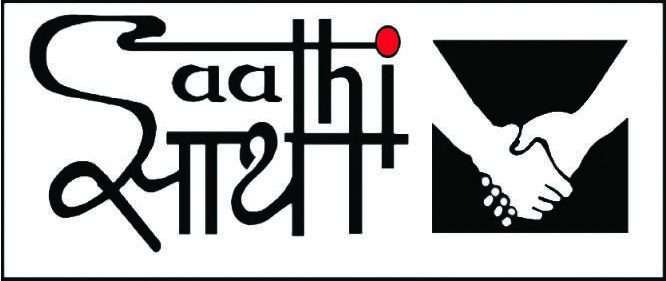May 14, 2025 | Online via Google Meet – As part of its ongoing commitment to strengthening the capacity of frontline workers, Saathi conducted a Virtual Legal Literacy Session on Gender-Based Violence (GBV) and Domestic Violence (DV) on May 14, 2025. The session was organized under the GOAL Project (Generating Ownership Awareness and Liberation from harmful gender stereotypes and SGBV), with the support of Aide à l’Enfance de l’Inde et du Népal (AEIN), Luxembourg.
Facilitated by Ms. Anita Neupane Thapalia, Executive Director of the Legal Aid and Consultancy Center (LACC), the session aimed to enhance legal understanding among frontline staff working in shelters, safe houses, and rehabilitation centers. A total of over 70 participants joined the session via Google Meet.
Empowering Frontline Staff Through Legal Literacy
Opening the session, Ms. Sapana Maharjan, Program Coordinator at Saathi, welcomed participants and expressed sincere appreciation to AEIN for their continued support in advancing survivor-centric approaches across Nepal. She emphasized the importance of legal capacity-building for those working directly with survivors:
“Legal literacy is essential in ensuring effective, rights-based support for survivors—service providers must be adequately capacitated to navigate the legal dimensions of every case,” stated Ms. Maharjan.
The session focused on deepening participants’ knowledge of Nepal’s legal frameworks addressing GBV and DV, including the Domestic Violence (Crime and Punishment) Act, Human Trafficking and Transportation (Control) Act, and cybercrime legislation. Ms. Thapalia also highlighted recent developments in child protection, workplace harassment, and online gender-based violence.
“When a woman decides to take legal action or leave her home, it is often a last resort after years of suffering,” said Ms. Thapalia. “Yet, once she reaches the justice system, she is further frustrated by delays, insensitive treatment, and institutional barriers.”
She called for survivor-centric implementation of laws, ongoing reform to address emerging forms of violence—particularly digital GBV—and stronger coordination among service providers.
Active Engagement and Ground-Level Insights
The session included a highly interactive segment where participants shared field-level challenges and legal gaps they face while supporting survivors. Key highlights included:
- KIN Nepal raised concerns about perpetrators of SGBV being released on bail despite compelling evidence, and the absence of specific legal categories for online sexual violence.
- Women’s Foundation discussed challenges faced by children aging out of institutional care without legal documentation such as citizenship or birth registration.
- For The One suggested leveraging Article 48(5) of the Constitution and engaging the National Child Rights Council to support transitional planning.
- Rashya Nepal highlighted the trauma linked to lack of vital registration for children in care.
- Rajmati Bhatt inquired about legal remedies for online GBV cases.
- Urmila Shahi from Kanchanpur shared a troubling case involving workplace harassment by a government official that failed to receive adequate legal attention.
Moving Forward
The session concluded with Ms. Thapalia addressing all concerns and emphasizing the importance of equipping frontline workers with legal literacy to better support survivors. Saathi extended heartfelt thanks to the facilitator and participants for their active engagement and reaffirmed its commitment to promoting justice and empowerment through capacity-building initiatives.
This session marked the launch of Saathi’s 2025 capacity-building series under the GOAL Project, building on the momentum of the 2024 sessions that focused on survivor-centered approaches, case management, and cyber safety.









